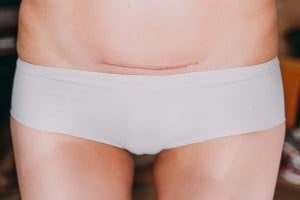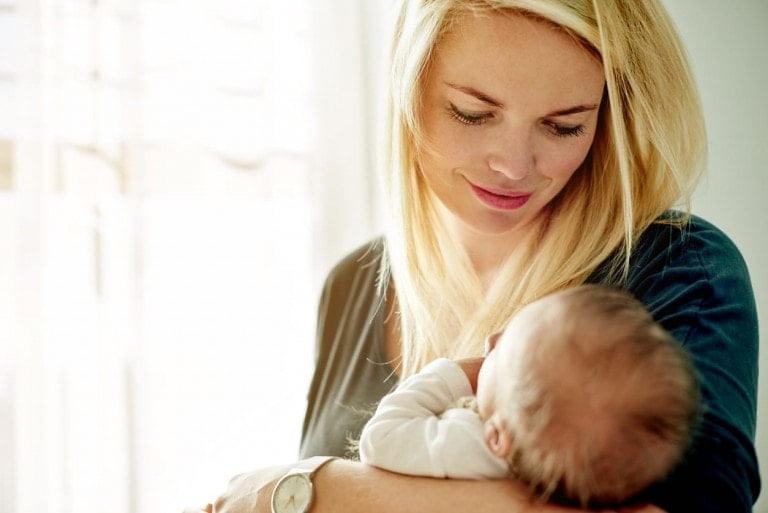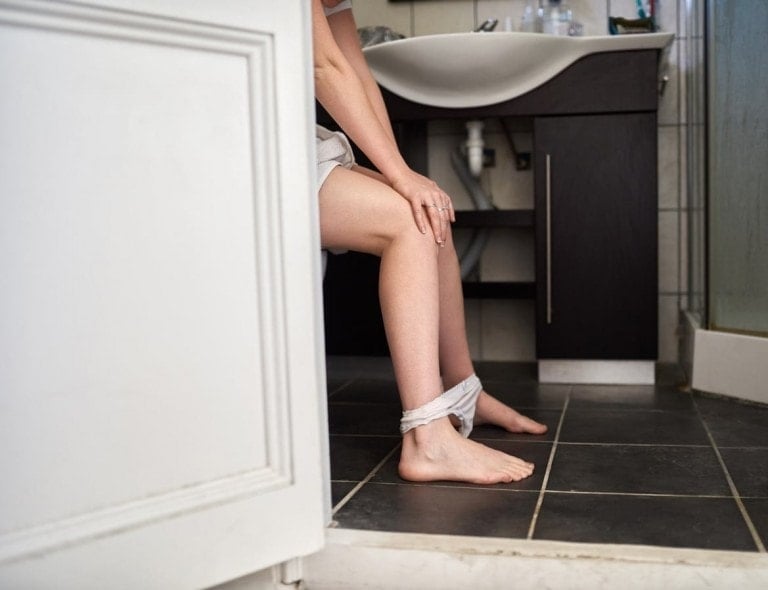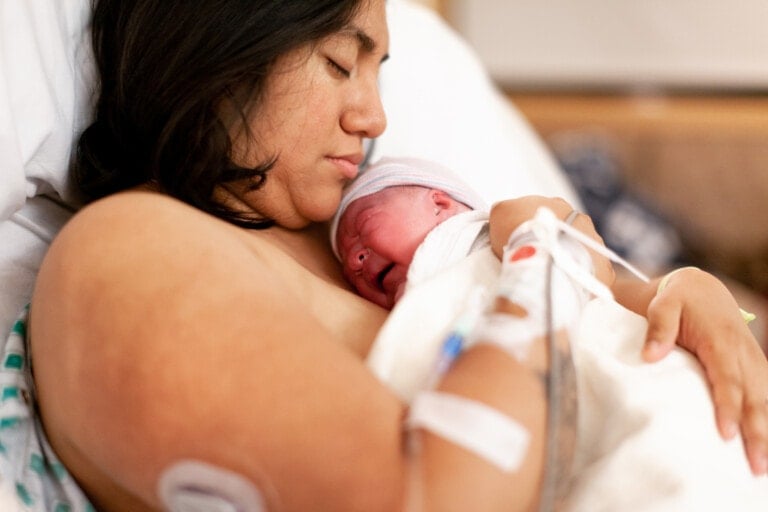Having a baby comes with a wide range of experiences, from pure joy and wonder to overwhelm and exhaustion and everything in between. After giving birth, the thought of having another baby may be the furthest thing from your mind. On the other hand, you may already be thinking about baby names for your little one’s future siblings. Whatever your desires for your family are, it is helpful to be aware of when your menstrual cycle may resume, as well as the possibility of pregnancy after delivery. Read on to learn about when you can become pregnant again after having a baby and available options for postpartum birth control.
Why Should You Use Birth Control After a Baby?
After delivery, your menstrual cycle may restart without skipping a beat, so your body may ovulate. This happens before your first period. Typically, ovulation occurs when one of your ovaries releases an egg. The egg then waits for a sperm to fertilize it. Having unprotected sex during this time can result in another pregnancy within weeks of delivery.1,12
If you are breastfeeding, then menstruation is often delayed, but most women start menstruating again by six months. On the other hand, if you are not breastfeeding, your period can return as soon as a few weeks after giving birth.12 Unless you have decided you want to get pregnant again immediately after giving birth, abstinence or an effective form of postpartum birth control can help you avoid this.2
There are health benefits for moms and babies that have been correlated with waiting at least 12 to 24 months between giving birth and becoming pregnant again.3,4 The American College of Obstetricians and Gynecologists advises that women avoid interpregnancy intervals of less than six months and recommend waiting at least 18 months to achieve another pregnancy.13 Spacing pregnancies can decrease your risks for preterm birth, maternal anemia, and postpartum depression with your next pregnancy.4,5,6 Allowing your body time to heal allows it to recover and replenish nutrient stores, such as folic acid. This can help ensure you are ready for pregnancy if or when you decide to have another baby.5
There is an exception to this recommendation in the case of miscarriage. If you are healthy and ready to conceive again, waiting does not benefit you.4
How Long After Giving Birth Can You Have Sex?
There isn’t a universally agreed-upon amount of time you need to wait before having sex after giving birth. However, after delivery, your body requires time to heal. If you delivered vaginally, your cervix had to open or dilate to 10 centimeters and is gradually shrinking to its pre-pregnancy size.6 Sexual intercourse with penetration before this has happened puts you at an increased risk for uterine infection.14
Many healthcare providers advise waiting at least until after your six-week follow-up appointment to resume sex, particularly if you require stitches for a tear or had a C-section.7 If you delivered vaginally and intact, which means there were no perineal tears, you may be cleared for sex as early as two weeks after delivery.6,14
What Might Be Your Most Effective Options After Having a Baby?
When choosing a birth control method after pregnancy, you’ll want to consider when or if you would like to get pregnant again and how conveniently the method fits into your new lifestyle.7 It is essential to keep in mind that even methods of birth control that are considered to be the most effective do not come with a 100% no-pregnancy guarantee. Only refraining from sexual intercourse can make that claim.2
Here are some postpartum birth control options listed from most to least effective:3,6,12
- Tubal ligation for mom or vasectomy for dad: These are one-time surgical procedures.
- Long-acting contraceptives: For instance, intrauterine devices (IUDs) or hormonal implants. Your OB healthcare provider can insert these while you are in the hospital, and they last for years.
- Short-acting hormonal methods: Examples include the mini pill, oral combined contraceptive pills, patches or vaginal rings, and injections every three months. These must be taken as prescribed to be most effective.
- Barrier methods: These include condoms and diaphragms. They must be used every time you have sex.
Talk with your OBGYN care provider about these options to decide what will work best for you and when to start birth control after delivery.6 Until you have chosen and established a reliable postpartum birth control method, talk to your partner about condoms to help prevent another pregnancy.7
Birth Control While Breastfeeding: What Are My Options?
There is some debate about whether birth control pills that contain estrogen reduce milk production. Some women have experienced this once starting estrogen-containing birth control pills, even after their milk supply has been established. If you are concerned about this possibility or have had milk production challenges with previous pregnancies, alternative options include pills that only include progesterone (the mini-pill) and certain IUDs.10 If you choose to breastfeed your baby, be sure to discuss which contraceptive method you are most comfortable using with your OB care provider.
Can You Get Pregnant While Breastfeeding?
It depends. Under specific circumstances, breastfeeding may delay ovulation.6 Without an egg, pregnancy cannot happen. The lactation amenorrhea method (LAM) uses breastfeeding as birth control. If any of the conditions are not met, however, you can get pregnant even though you are breastfeeding. Here are the criteria required for the lactation amenorrhea method to prevent ovulation:6,12
- Your period must not have resumed yet.
- Your baby must be less than six months old.
- Your baby is breastfeeding exclusively, meaning you are not giving formula or solid food.
The reliability and duration of the LAM can vary. Be sure to discuss using breastfeeding as your postpartum birth control method with your OBGYN care provider.4,9
Can You Take Plan B While Breastfeeding?
Plan B (Levonorgestrel) can be used as an emergency contraceptive if you either have unprotected sex or you suspect there may have been a lapse in effectiveness from the method of birth control you used. If you take Levonorgestrel and you are breastfeeding, some of the medication may cross over into your breastmilk, but the small amount should not harm your baby.11
Levonorgestrel is a lactation category 2 medication, indicating there is limited data. However, it is probably compatible with breastfeeding. There is no absolute indication to pump and dump. There is a theoretical risk that it could impact your milk supply. Waiting three to four hours after taking a dose before breastfeeding is recommended.11
Because your body may resume ovulation soon after giving birth, it is essential to consider your birth control options. If you are ready to be sexually active and would rather not get pregnant again, talk to your OB care provider about available contraceptive methods.































